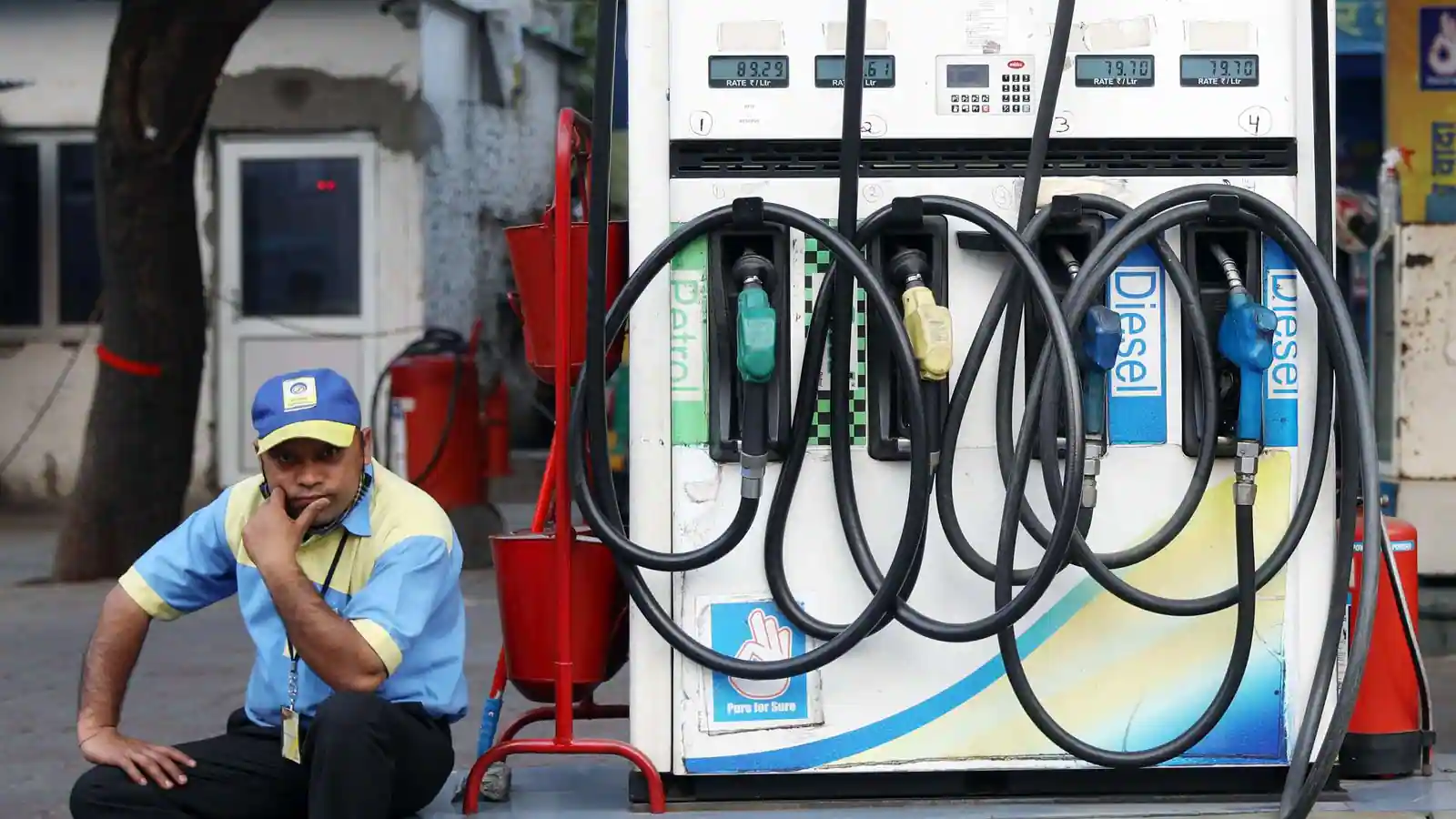After a four-month hiatus, petrol and diesel prices rose on Tuesday, with oil marketing companies (OMCs) raising both fuel rates by around Rs 0.8 per litre. The first of what experts predict to be a succession of price rises drove petrol to Rs 96.21 per litre and diesel to Rs 87.47 per litre in the national capital. OMCs also raised the price of LPG by Rs 50 per cylinder in the capital, putting the cost of a 14.2 kg cylinder to Rs 949.5.

Because crude oil prices have risen considerably as a result of the Russia-Ukraine crisis, both petrol and diesel prices are projected to climb further. Brent oil prices have risen by 40% to $114.2 per barrel, up from $81.6 per barrel when OMCs last reviewed gasoline prices. About 85% of India’s crude oil needs are met by imports.
Since November 4, when the Centre announced a Rs 5 per litre drop in petrol excise tax and a Rs 10 per litre fall in diesel excise duty, state-owned OMCs have maintained both petrol and diesel prices steady. In the run-up to the Assembly elections in five states earlier this month, pricing adjustments remained frozen. Normally, the price of gasoline and diesel is adjusted daily, based on a 15-day rolling average of petroleum product benchmark prices.
OMCs raised the price of bulk diesel by Rs 25 per litre on Sunday, putting bulk rates substantially above retail pump pricing. In Mumbai, the wholesale price of diesel is presently Rs 122 a litre, while the retail price is Rs 95 per litre.
Experts estimate that for every $1 per barrel increase in crude oil prices, petrol and diesel prices must be increased by around Rs 0.52 to allow OMCs to retain their marketing margins. Due to the roughly $33 per barrel rise in crude prices since the previous price adjustment, OMCs may need to raise prices by as much as Rs 17 per litre for both petrol and diesel to restore normal marketing margins.
However, larger refining margins — the gap between the price of crude oil and the value of petroleum products produced in a refinery using crude oil — might allow refiners to continue to absorb some of the effect of higher crude oil prices. According to analysts, the Centre may lower excise rates on gasoline and diesel, which are still higher than pre-pandemic levels, to lessen the impact of high crude oil prices on consumers. Petrol excise charge is still Rs 8 per litre more than it was before the epidemic, and diesel excise duty is still Rs 6 per litre higher.
The large price differential between bulk and retail diesel has already encouraged bulk users to purchase the fuel from retail stores.
“Due to an increasing differential of Rs 25/ltr between retail and industrial diesel prices, there is a major jump in demand at fuel stations (retail outlets), resulting in considerable diversion of bulk HSD (direct consumers) to retail outlets.” “There is also a lot of heavy lifting of fuel by dealers and both B2B and B2C customers who have made advance purchases to top up their tanks and capacities in anticipation of an overdue price increase,” said a spokesperson for Reliance BP Mobility Ltd (RBML), which operates over 1,380 retail fuel outlets across the country.
RBML sources acknowledged that it has limited the supply of both gasoline and diesel at retail outlets due to sales losses. When crude oil prices hit all-time highs in 2008, Reliance was forced to shut down its fuel retail business because it couldn’t compete with state-owned OMCs’ subsidised rates.
Diesel costs will be much higher for key bulk buyers such as Indian Railways, industries, malls, and transportation businesses than for retail customers. Industries generally utilise diesel in gensets for power backup and mobile tower operation. For housing societies that rely on diesel generators, power backup will become more expensive. Higher pricing for bulk purchasers may disproportionately harm users of gensets in tier-2 and tier-3 cities, according to an expert, because power supply in tier-1 cities like Delhi and Mumbai is more stable.

